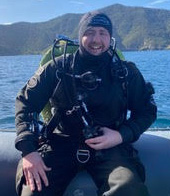SEMINAR 2024
Accuracy requirements for small mass-ratio binaries
| Speaker | Dr Ollie Burke. Laboratoire des deux Infinis, Toulouse |
| Date/Time | Wednesday, 27 March, 3PM |
| Location | Conference room: S11-02-07 |
| Host | Asst/Prof Alvin Chua |
Abstract
Current observations through ground-based detectors of gravitational waves (GWs) are having a pronounced effect on the understanding of our universe. The proposed space-based detector, the Laser Interferometer Space Antenna, will provide access to observations of GWs in the rich mHz frequency band, thus higher mass binaries. However, this science potential cannot be realised without access to accurate gravitational waveform models that are faithful to the true gravitational wave buried within the noise of the LISA instrument. A promising source of gravitational radiation for the LISA instrument are those of small mass-ratio binaries, specifically when the companion compact object is a factor, say, 100,000 smaller than the central black hole. In this talk I will give a pedagogical discussion of the importance of accurate waveform modelling of small mass-ratio binaries, discussing the detrimental impact on science if these waveforms are mis-modelled. To conclude, we will discuss whether the spin of the secondary body can be constrained.

Biography
Ollie attained a master of mathematics degree from the University of Edinburgh, and then started his PhD in 2017 at the same university with supervisor Jonathan Gair. Ollie worked at Edinburgh for two years until then transferring to the Albert Einstein Institute in Potsdam, Golm where he completed his PhD. Ollie now works under Nicola Tamanini at the Laboratoire des deux infinis in France as a postdoctoral researcher. His expertise is on LISA data analysis, primarily focusing on extreme mass-ratio inspirals and non-stationary noise modelling of the LISA instrument (gaps, glitches and gremlins in the data).

